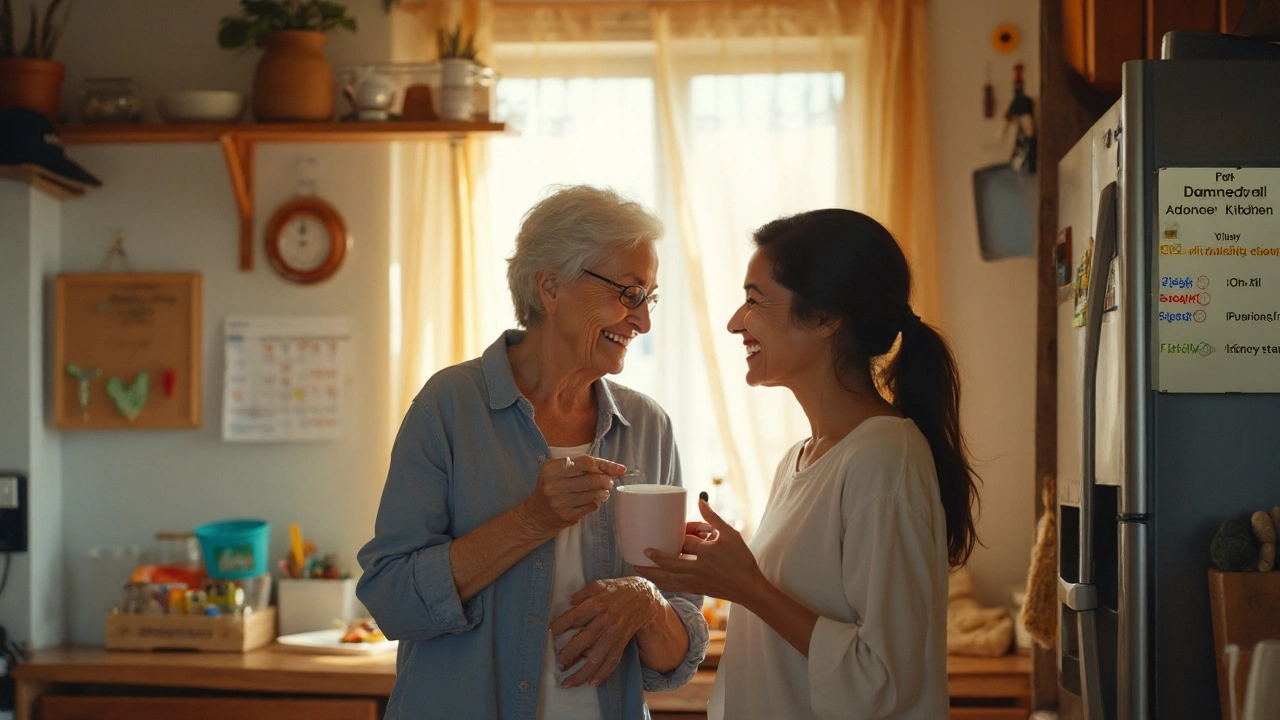- 180-Day Exclusivity and Authorized Generics: Legal Considerations in U.S. Drug Markets Feb 7, 2026
- 10 Best Alternatives to Cialis for Erectile Dysfunction Oct 28, 2024
- Explore Effective Clomid Alternatives for Fertility Treatment Nov 18, 2024
- Top 10 Prelone Alternatives in 2025: What You Need to Know Mar 19, 2025
- Pediatric Hearing Loss: Screening, Causes, and Early Intervention Dec 1, 2025
Caregiver Tips: Easy Strategies for Everyday Support
Taking care of someone at home can feel overwhelming, but a few simple habits make a big difference. Below are bite‑size tips you can start using right now, whether you’re handling meds, managing appointments, or just keeping the house running smoothly.
Medication Safety Made Simple
Mixing up pills is a common mistake. Keep a dedicated pill organizer and label each compartment with the day and time. When you pick up a new prescription – say, Levaquin or Diclofenac – double‑check the spelling, dosage, and any special instructions before you fill it. Ask the pharmacist to explain potential side effects in plain language; knowing that Levaquin can cause tendon pain or that Diclofenac may irritate the stomach helps you watch for warning signs early.
Set up reminders on your phone or a wall calendar. A quick buzz before each dose reduces missed or extra pills. If the person you’re caring for has memory issues, place the medication bottle in a visible spot and keep a written list nearby.
Daily Routines That Reduce Stress
Consistency is calming. Build a morning checklist that includes basic tasks like brushing teeth, taking blood pressure meds, and a light stretch. In the evening, a short walk or gentle chair yoga can improve sleep and mood. Keep a notebook of what works – maybe a warm milk before bed helps, or a favorite song eases anxiety during doctor visits.
When you’re juggling appointments, use a single notebook or app to record dates, times, and any questions you want to ask the doctor. Write down any new symptoms right away; that way you won’t forget important details during the visit.
Nutrition doesn’t have to be fancy. Simple meals like oatmeal with berries, a veggie‑packed sandwich, or a frozen‑veggie stir‑fry provide energy without extra prep time. If the person you care for has dietary restrictions, keep a cheat‑sheet of safe foods and substitutes.
Lastly, take care of yourself. A short break – even five minutes of deep breathing or a quick walk around the block – refreshes your mind and makes you a better caregiver. Share responsibilities with family members when possible, and don’t hesitate to ask for help from local support groups.
These straightforward caregiver tips can turn daily chaos into a smoother routine, letting you focus on what matters most: quality time with the person you love.
Why Social Connection Matters in Dementia: Practical Guide for Caregivers and Families
- Elara Whitlock
- Sep 5, 2025
Clear, practical guidance on how social connection improves mood, cognition, and daily life for people with dementia-plus checklists, examples, and troubleshooting.
